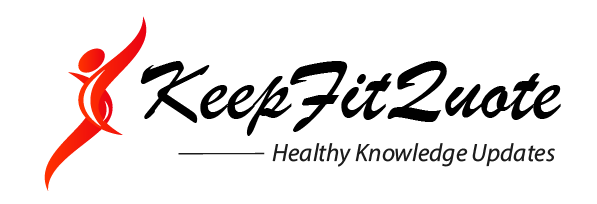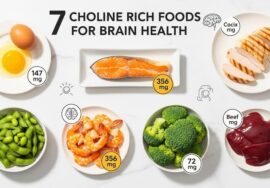Many people think heart attacks strike suddenly with crushing chest pain. But in older adults, that dramatic scenario is far from typical. The body often gives off quiet, almost unnoticeable warnings in the days or even weeks before a major event. Recognizing those early clues could make the difference between a quick recovery and a serious medical emergency.
Table of Contents
- Why Paying Attention Early Matters
- Why Symptoms Can Look Different in Older Adults
- Subtle Warnings You Shouldn’t Ignore
- What to Do If You Notice These Signs
- Protecting Your Heart as You Age
- Frequently Asked Questions
Why Paying Attention Early Matters
A heart attack happens when blood flow to part of the heart is blocked. Every minute that passes without treatment increases the damage. The challenge is that the warning signs in seniors aren’t always obvious. They can be mild enough to dismiss as tiredness, a bad meal, or just getting older. But these “minor” symptoms are often the heart’s way of asking for help long before it reaches a critical point.
Why Symptoms Can Look Different in Older Adults
Heart attack symptoms in seniors can be unusual for several reasons. Many experience little or no chest pain, which is why some attacks go unnoticed until much later. Confusion, dizziness, or even sudden disorientation can sometimes be the only outward signs. Silent heart attacks — events with almost no recognizable symptoms — are also more common as people age. And because many seniors attribute fatigue or stomach upset to age or other health issues, they often delay seeking help.
Subtle Warnings You Shouldn’t Ignore
The heart often “whispers” before it “shouts.” Here are early signs that deserve attention, especially if they are new or persistent:
1. Unusual Tiredness
Feeling drained for days without any clear reason is one of the most overlooked signals. This isn’t ordinary tiredness; it’s the kind that makes simple tasks feel exhausting.
2. Shortness of Breath
Breathlessness during light activity — or even while sitting — should never be brushed off. For many older adults, this may be the only symptom.
3. Mild Chest Tightness or Pressure
Recurring pressure or a heavy feeling in the chest, especially during physical or emotional stress, is a classic warning. It may disappear with rest, but that doesn’t make it safe to ignore.
4. Pain in Unexpected Areas
Discomfort in the jaw, neck, upper back, or arms — sometimes without chest pain — can be heart-related. Women often experience this more than men.
5. Indigestion or Nausea
A heart attack can feel like heartburn or stomach upset. Persistent indigestion or unexplained nausea should be taken seriously, especially when combined with other symptoms.
6. Dizziness or Faintness
Sudden lightheadedness, feeling faint, or losing balance for no clear reason can mean the heart isn’t pumping blood effectively.
7. Cold, Clammy Sweats
Breaking out in a sweat when you’re not active or overheated is another red flag.
8. Restless Sleep or Unease
Many people recall nights of unusual restlessness or a sense that “something isn’t right” before a heart attack.
9. Irregular Heartbeat
A racing or fluttering heart that happens unexpectedly or more often than usual can signal strain on the heart.
10. Sudden Confusion
For seniors, a rapid change in alertness or memory can sometimes be the first and only noticeable symptom.
What to Do If You Notice These Signs
If symptoms strike suddenly or worsen quickly, call emergency services right away. Don’t attempt to drive yourself. For milder but persistent symptoms — like chest discomfort that keeps returning or ongoing fatigue — see a doctor as soon as possible. Even if the signs go away, get checked. Many heart attacks are preceded by warning episodes that come and go before the main event.
Protecting Your Heart as You Age
Reducing your risk is just as important as spotting the early warnings. Small, consistent lifestyle changes can keep your heart healthier:
- Move regularly, even if it’s just a daily walk.
- Focus on vegetables, fruits, lean proteins, and healthy fats; cut back on fried and salty foods.
- Monitor blood pressure, cholesterol, and blood sugar.
- Stop smoking, and avoid secondhand smoke.
- Maintain a healthy weight; even modest weight loss helps.
- Find ways to manage stress, like deep breathing or hobbies.
- Follow your doctor’s advice and keep up with regular check-ups.
Frequently Asked Questions
Q: Can a heart attack happen without chest pain?
Yes. Many older adults experience silent heart attacks, where symptoms such as fatigue or breathlessness are the only clues.
Q: How far in advance do warning signs appear?
Some people notice unusual symptoms days or even weeks before a heart attack.
Q: Are women’s symptoms different from men’s?
Women often have more subtle signs, like nausea, fatigue, or jaw and back discomfort, along with or instead of chest pain.
Q: Should I worry if my symptoms go away?
Yes. Symptoms that fade can still mean the heart isn’t getting enough blood. Always get evaluated.
Q: What’s the most effective way to lower the risk?
Stay active, eat a heart-friendly diet, manage blood pressure and cholesterol, avoid smoking, and have regular medical check-ups.








